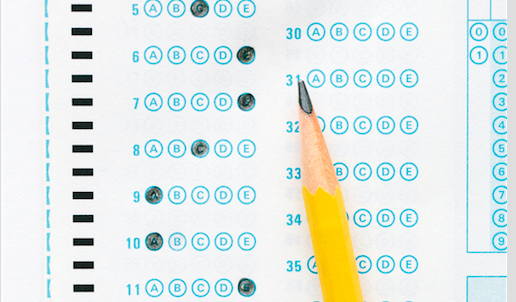When it comes to measuring success in charter schools, there are two well-established camps. In the first, are those asserting that the only measure of school quality should be the marketplace, driven by parent demand. In the other, are those that measure school quality by how well charters are providing better educational outcomes for children.
Ideally, these two definitions of quality should complement and reinforce each other; indeed, most quality charter schools are both in demand and producing measurable learning outcomes. But when a school remains popular with parents despite failing scores, tensions rise. One side deems the school a success regardless of its performance, while the other uses the test results as evidence to question whether the school should be allowed to remain open.
On the national stage, this tension is most visible when reports on the academic performance of charter schools are published, such as the most recent report from the Center for Research on Educational Outcomes (CREDO).
CREDO’s analysis found that some charter schools, especially those that are part of nonprofit networks, are delivering exceptional results for children, as measured by improvements in reading and math scores. In Los Angeles, students in the city’s 13 largest charter school networks average 50 additional days of learning in math and 24 days in reading each school year compared to students at the city’s other public schools.
CREDO also found that, on average, a student attending a charter school run by a for-profit company will lose 23 days of learning in math and six days in reading compared to a peer at a charter run by a nonprofit. Out of the 180-day school year, an average student attending an online charter run by a network will receive just 43 days of learning in math and 117 days of reading.
[Read More: Between District and Charter: The Middle Path]
Most charter advocates working to grow a high-quality charter sector, such as my organization, viewed the report as evidence that charter schools are improving and many networks are delivering amazing results for children. But we also saw some results that were unacceptable, including the badly lagging achievement among virtual charter schools.
But the day after CREDO released its report, Jeanne Allen, head of the Center for Education Reform, proclaimed that any charter supporter who did not rely solely on the judgment of parents was an “enemy” of the charter movement. She argued that “education entrepreneurs,” a euphemism for the for-profit school management companies that fund her organization, should be “free to open new schools” at public expense and only “parents should decide which schools should close,” regardless of their academic performance.
Other charter advocates rightly dismissed that reasoning. Checker Finn of the Fordham Institute and a long-standing, respected voice for conservative principles in education, denounced Allen’s singular reliance on parent choice as a measure of school quality as “idiocy.”
We would be foolish to judge a school’s success solely on its math and reading scores because we know students are also learning and gaining skills in science, foreign language, history, physical fitness, and the arts. They also are growing in more intangible areas that are even harder to measure, such as respect for others, self-discipline, and citizenry. Unfortunately, our official state accountability systems don’t adequately capture many of these attributes.
But the fact that our official systems do a poor job capturing these attributes does not mean that the public wants to pay for bad schools. The public invests in schools with an expectation of results, not just parent satisfaction.
We should not waste taxpayers’ money on schools that are not fulfilling their basic obligation—educating children. It was the failure of many traditional public schools to deliver on these expectations that led to the charter school movement in the first place.
Charter schools must be accountable to parents, and performance must be assessed by a more comprehensive set of considerations than just reading and math scores. This includes other academic achievement metrics as well as measures of personal growth, parent and student satisfaction, proper stewardship of public dollars, and transparency to the public and parents.
None of this happens automatically. It requires lawmakers, advocates, charter schools, and the bodies that authorize charters to work together to carefully create policies that simultaneously promote school choice, preserve school autonomy, and make good on our promises to families and taxpayers.
Good authorizers look at a range of measures of school quality to determine whether a charter school is fulfilling its obligations to students, taxpayers, and the public.
There are still too many children in our country who do not now have the chance to attend a good school. When charter school advocates work together to balance choice, autonomy, and accountability—not one at the expense of others—charter schools can deliver exceptional results so that more children can attend a good school that prepares them for success in life.
Greg Richmond is president & CEO of the National Association of Charter School Authorizers.

